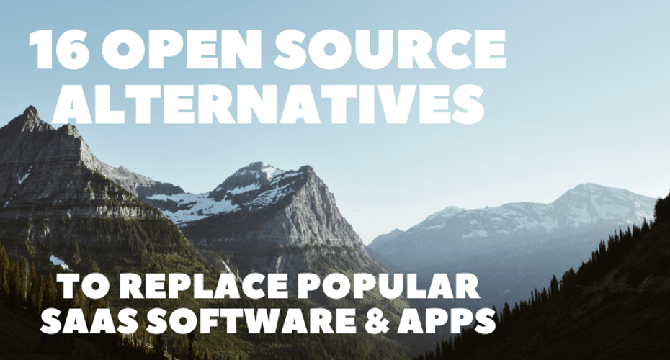Dev
3w
153

Image Credit: Dev
16 Open Source Alternatives to Replace Popular SaaS Software & Apps 👨💻🔥
- This article explores 16 open-source alternatives to proprietary SaaS solutions like Webflow, Airtable, and Mailchimp.
- Open-source alternatives offer more flexibility and control options while providing similar capabilities to their SaaS counterparts.
- The 16 open-source alternatives discussed in this article include Webstudio, Rowy, Pocketbase, Spree, Zulip, Notesnook, Outline, Focalboard, Fathom, Sonic, Fider, Kuma, Flarum, Listmonk, Rallly, and ActivityWatch.
- These open-source solutions cater to various categories, including web builders, databases, backends, e-commerce platforms, communication tools, and more.
- Webstudio is an open-source web design tool that allows users to visually build websites without coding, while Rowy is a low-code platform that combines spreadsheets and databases to manage Firestore data visually.
- Pocketbase, on the other hand, is an open-source backend platform that offers authentication, file storage and real-time database functionalities.
- Zulip is an open-source team chat platform that allows real-time and asynchronous conversations through topic-based threading, while Notesnook is an open-source, privacy-focused note-taking app offering encrypted and secure note management.
- Other open-source alternatives include Outline for knowledge base, Focalboard for project management, Fathom for analytics, Sonic for search solution, Fider for feature voting, Kuma for monitoring, Flarum for community building, Listmonk for email marketing, Rallly for meetup scheduler, and ActivityWatch for time tracking.
- Choosing open-source alternatives over proprietary SaaS solutions provides privacy, customizability, and scalability without expensive subscriptions or proprietary ecosystems.
- With increasing costs and the desire for more control options, open-source software has become increasingly appealing for businesses and individuals alike.
Read Full Article
9 Likes
For uninterrupted reading, download the app